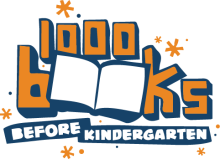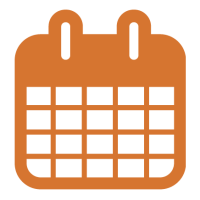About Story Time
We offer story times for a variety of ages. Please see our calendar for specific offerings.
Baby Story Time (ages 0-18 months)
This program is for infants and their caregivers. We sit in a circle with the infants on our laps and read aloud short books, sing songs, do rhymes with actions, and use objects such as shaker eggs and scarves. There is play time at the end of the program where the infants can interact with each other and play with books and toys.
Toddler Story Time (ages 1-2 years)
Toddler story time features lots of songs, actions and rhymes, and short books. It is specifically geared toward children of this age who are developing their attention spans and beginning to learn group behavior.
Preschool Story Time (ages 3-5 years)
In preschool story time, we read stories, sing songs with actions, and often create an art project related to the theme of the stories, building creativity and fine motor skills. Children may attend independently or with an adult. No younger siblings please.
Everybody Story Time (ages 0-5 years)
Everybody story time features books, songs, and rhymes.
Sensory Story Time (ages 3-5 years)
Build communication & friendship skills in a supportive environment. Story time features a visual schedule, yoga, and more.
Childcare providers
If you are a caregiver at a preschool or childcare center and would like to attend indoor story time, please contact the library at mgehrke [at] veronapubliclibrary.org (mgehrke[at]veronapubliclibrary[dot]org) about alternative story time opportunities for your group. A few events that work well for childcare centers to drop-in include outdoor story time, crafternoon, and performances in the main area of the library.
To request an accommodation to participate in library services, programs, or activities, please contact the library at 608-845-7180 or email vplyouth [at] veronapubliclibrary.org. Please submit your request at least two weeks in advance.
Why come to story time?
Story time is a free and fun activity for your child. Through songs, stories, and actions, children develop large and fine motor skills and early math and reading literacy. Art projects at the end of story time help build simple fine motor skills and reinforce that story time’s theme. Attending story time is a chance for your child to learn to be part of a group and make new friends--not to mention an opportunity to check out new books every time you visit the library! Research shows that children who have the highest success in reading have access to books at home.
Story time is also a wonderful way for your child to acquire the six early literacy skills the American Library Association has identified as laying important groundwork for learning to read.
Print Motivation
Print motivation is the enjoyment of reading and books. Keep reading fun – have your child participate in the story and read books on subjects of interest to her.
Vocabulary
Vocabulary is knowing the names of things, concepts, and feelings. Name the things you see during your day and spend time just talking and reading with your child. He’ll learn a lot of words just by hearing you speak!
Phonological Awareness
Phonological awareness is being able to hear smaller sounds in bigger words and being able to manipulate those sounds. Play word games, sing rhyming songs, and recite nursery rhymes and poems.
Letter Knowledge
Letter knowledge is knowing what sounds the letters make and that letters are different from each other. Point out letters in books and on street signs, look for things that have the shape of a certain letter, or make letter shapes out of clay.
Print Awareness
Print awareness is knowing how to hold and manipulate a book, knowing that we read from left to right and top to bottom, and knowing that words and print are all around us. Point out words on signs, read books where writing is part of the story, or run your finger along the words as you read.
Narrative Skills
Narrative skills include being able to tell or retell a story, recount events, and give descriptions. Have your child say repeated phrases with you as you read a book or ask your child questions about the book you’re reading.
1000 Books Before Kindergarten

The library has launched an important initiative to improve children's reading readiness. Learn more.





